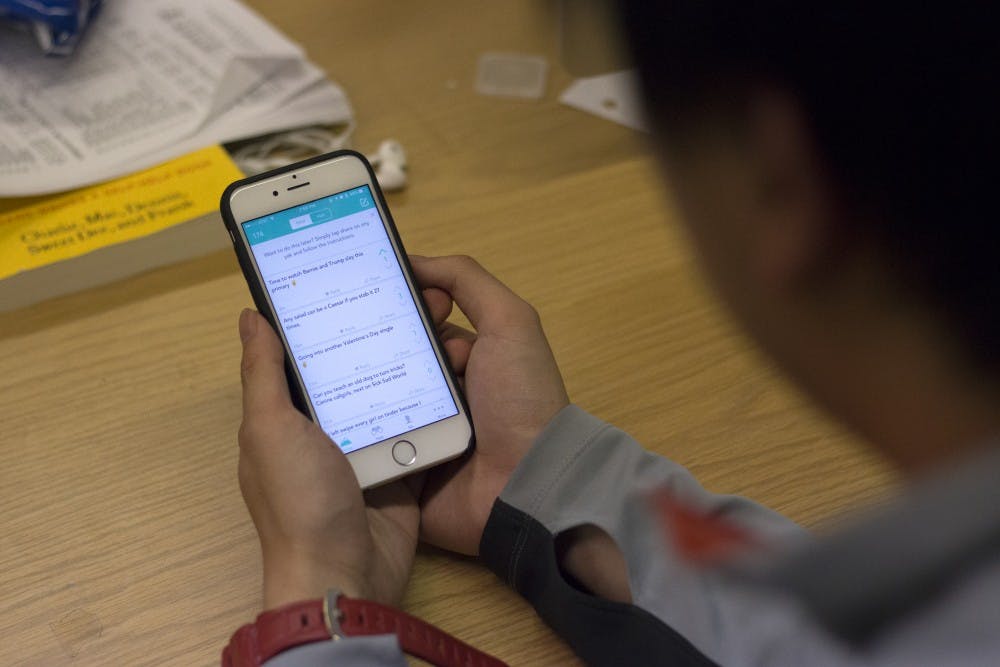
Although other colleges have made strides towards banning Yik-Yak on campus, Penn has no intention to do so at this time.
Hidden under a veil of anonymity, Penn’s Yik Yak users are free to rant, joke, complain and even make threats without fear of being identified. And while other colleges have taken steps to prevent cyberbullying on the platform, Penn’s focus on free speech makes any similar action very unlikely.
At the University of Missouri, users posted shooting threats directed at all black students. At Western Washington University, posts called for the black student body president to be lynched. And at Emory’s Oxford College campus a student was arrested in October for posting a shooting threat.
Due to posts of this nature, American college campuses have seen a growing trend of banning the app on the school Wi-Fi network or enforcing a geo-fence — a virtual fence that does not allow the app to be used — around the campus.
This ban is considered “symbolic” by some universities, since students can still access the app through their phones when they are not connected to the Wi-Fi. Administrators nevertheless have gone ahead with the ban because they want to assure students that they are aware of the harm the app can cause.
But when asked whether Penn would consider banning the app, College sophomore and Committee on Open Expression member Josh Glahn replied, “Absolutely not.”
“In our last committee meeting we did discuss Yik Yak, and basically it was a unanimous decision that even though it’s anonymous and that can lead to abuses, it also can lead to open expression for people who might not have that forum otherwise or might not feel the ability to say things with their name behind it,” Glahn said.
Penn Law professor Stephanos Bibas agreed that Penn is unlikely to ban Yik Yak. Bibas argued that legally problematic posts rarely show up, and when they do they should be handled through a legal process, not through a ban on the school’s server.
Bibas and Glahn both also agree that banning the app is not an effective way of dealing with the problem of hateful and threatening speech, as anyone who wishes to post hateful things can always find a way.
“There’s a lot of it [offensive and racist speech] online. Students are going to have to live with it elsewhere, and they’re going to have to learn not to look at it or ignore it or fight back,” Bibas said.
Bibas worries that by banning Yik Yak on the school’s Wi-Fi, the University would be showing that it endorses all other apps and websites that function on the server.
“Penn should not be in the business of saying we implicitly endorse the speech we allow on our email accounts or on websites we let students access,” Bibas said. “I think it’s technologically infeasible, practically infeasible, unlawful given that Penn has committed to follow the First Amendment, and a dangerous precedent.”
Last year the committee worked on broadening its Guidelines on Open Expression to include online speech so that controversial issues such as this one would be covered.
“Basically the University expects its students and people using its Wi-Fi networks to be mature in using these applications," Glahn said. “And they feel that it’s important to have a forum for open expression and not to close it on the possibility of someone abusing it.”
The Daily Pennsylvanian is an independent, student-run newspaper. Please consider making a donation to support the coverage that shapes the University. Your generosity ensures a future of strong journalism at Penn.
DonatePlease note All comments are eligible for publication in The Daily Pennsylvanian.








